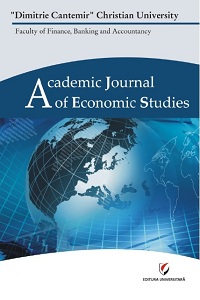Game Theory and its Application in International Trade: Use of Strategic Games in Trade Policy
Game Theory and its Application in International Trade: Use of Strategic Games in Trade Policy
Author(s): Vincent Lissu MughwaiSubject(s): Business Economy / Management, Socio-Economic Research
Published by: Editura Universitară & ADI Publication
Keywords: Game theory; international trade; mixed strategy; prisoner’s dilemma; nash equilibrium;
Summary/Abstract: The objective of this paper is to analyze the application of game theory in international trade. Given the fact that countries differ with each other in terms of their production capabilities, natural resource endowments, levels of technological innovation and so forth, game theory can be used as one of the tools in resource allocation. Theoretic games models assume that players in international trade are rational actors who make rational decisions something that is contrary to the reality. Typically, actors in the international trade are comprised of self-interested individuals whose decisions are not necessarily based on rationality. This article argues that even though game theoretic models cannot sufficiently provide answers to all economic problems, its applications are essential in resolving complex issues in bargaining, resource allocation and strategic decision-making in international trade.
Journal: Academic Journal of Economic Studies
- Issue Year: 6/2020
- Issue No: 2
- Page Range: 96-101
- Page Count: 6
- Language: English

